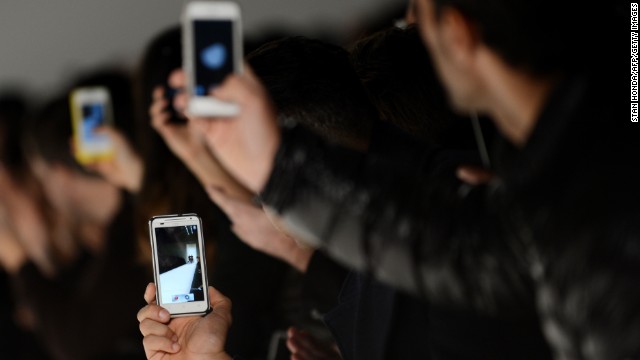- Back to Home »
- Did Florida just make computers illegal?

- Florida recently passed a law to crackdown on gambling in Internet cafes
- A new lawsuit alleges that the law could make all computers and smartphones illegal
- The law greatly expanded the definition of what qualifies as a "slot machine"
(CNN) -- Did Florida just accidentally make all computers and smartphones illegal?
The state recently passed a bill to crack down on gambling in Internet cafes. In a potentially unfortunate twist for anyone using a computer or smartphone in the state, a new lawsuit alleges the wording on the bill is so broad that it could be interpreted as a ban on any device connected to the Internet.
A new bill passed two months ago by the Florida legislature expanded the definition of a "slot machine" so that it would include regular computers being used as makeshift slot machines, closing a loophole in state laws that legislators said allowed some gambling centers to operate as Internet cafes and adult arcades.
The crackdown was kicked off by a multi-year investigation of a number of Florida gambling cafes that were masquerading as part of a charitable organization. It resulted in more than 50 arrests, the resignation of Florida Lt. Governor Jennifer Carroll and the new bill banning Internet cafes.
"There are unintended consequences of hastily passed legislation in the wake of a scandal," said attorney Justin Kaplan, whose firm Kluger, Kaplan, Silverman, Katzen & Levine is representing the plaintiff in the suit.
This lawsuit, which was published by the Miami Herald, is being brought on behalf of Incredible Investments, LLC, and its owner Consuelo Zapata. The company ran an Internet cafe in Homestead, a farming community south of Miami. Zapata's cafe offered game promotions to visitors, When they purchased time on one of the machines they could use the computer to see if they'd won anything. The lawsuit compares these "sweepstakes drawings" to common company contests such as McDonald's Monopoly game.
Florida's new, expanded definition of a slot machine includes "any machine or device or system or network of devices" used to play games of chance or skill, which can be activated by not just inserting money, but an "account number, code, or other object or information."
According to the lawsuit, this new definition could include any smartphone or computer in Florida since, in theory, any device with access to the Internet could be used to play an illegal game.
"The possibilities of going on the Internet and using your phone generally turns every single smartphone, computer, whatever, into an illegal slot machine," said Kaplan.
For example, a recent Bud Light advertising campaign shows a man entering a code from a case of beer into his smartphone to see if he won a prize from the company.
"Clearly you have a device which is activated by input of a code that indirectly, by any element of chance, entitles you to a payout," said Kaplan of the contest.
Anyone can walk into a public library and use its computers to participate in a March Madness contest, such as Yahoo's annual Tourney Pick 'em, which offers a grand prize of $10,000. According to Kaplan, the owner of that network of computers could be in trouble for running illegal slot machines.
The definition of what is or isn't a slot machine isn't the only issue with the new law. Kaplan says that the law is unconstitutional because of an amendment that presumes a device is a slot machine if "it is used to display images of games of chance" and involves a payout of anything of value.
"Here the burden is shifted," said Kaplan. "It's saying you are presumed to be guilty, now prove to us this really wasn't a slot machine."
Arcades and business with standalone gaming machines are being impacted as well, and more than 1,000 Internet cafes have already been shut down under the new law, according to the Tampa Bay Times.







